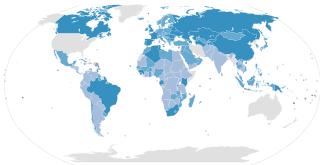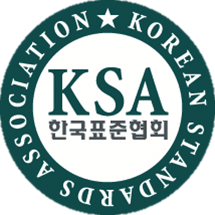- Labor Standards Act, National Legislation Information Center (in Korean)
| Labor Standards Act |
| | This South Korea-related article is a stub. You can help Wikipedia by expanding it. |
| Labor Standards Act |
| | This South Korea-related article is a stub. You can help Wikipedia by expanding it. |

The United States Department of Labor (DOL) is one of the executive departments of the U.S. federal government. It is responsible for the administration of federal laws governing occupational safety and health, wage and hour standards, unemployment benefits, reemployment services, and occasionally, economic statistics. It is headed by the secretary of labor, who reports directly to the president of the United States and is a member of the president's Cabinet.

United States labor law sets the rights and duties for employees, labor unions, and employers in the US. Labor law's basic aim is to remedy the "inequality of bargaining power" between employees and employers, especially employers "organized in the corporate or other forms of ownership association". Over the 20th century, federal law created minimum social and economic rights, and encouraged state laws to go beyond the minimum to favor employees. The Fair Labor Standards Act of 1938 requires a federal minimum wage, currently $7.25 but higher in 29 states and D.C., and discourages working weeks over 40 hours through time-and-a-half overtime pay. There are no federal laws, and few state laws, requiring paid holidays or paid family leave. The Family and Medical Leave Act of 1993 creates a limited right to 12 weeks of unpaid leave in larger employers. There is no automatic right to an occupational pension beyond federally guaranteed Social Security, but the Employee Retirement Income Security Act of 1974 requires standards of prudent management and good governance if employers agree to provide pensions, health plans or other benefits. The Occupational Safety and Health Act of 1970 requires employees have a safe system of work.
Labor rights or workers' rights are both legal rights and human rights relating to labor relations between workers and employers. These rights are codified in national and international labor and employment law. In general, these rights influence working conditions in the relations of employment. One of the most prominent is the right to freedom of association, otherwise known as the right to organize. Workers organized in trade unions exercise the right to collective bargaining to improve working conditions.

The 81st United States Congress was a meeting of the legislative branch of the United States federal government, composed of the United States Senate and the United States House of Representatives. It met in Washington, D.C. from January 3, 1949, to January 3, 1951, during the fifth and sixth years of Harry S. Truman's presidency.

Penal labour is a term for various kinds of forced labour that prisoners are required to perform, typically manual labour. The work may be light or hard, depending on the context. Forms of sentence involving penal labour have included involuntary servitude, penal servitude, and imprisonment with hard labour. The term may refer to several related scenarios: labour as a form of punishment, the prison system used as a means to secure labour, and labour as providing occupation for convicts. These scenarios can be applied to those imprisoned for political, religious, war, or other reasons as well as to criminal convicts.
United States v. Darby Lumber Co., 312 U.S. 100 (1941), was a case in which the United States Supreme Court upheld the Fair Labor Standards Act of 1938, holding that the U.S. Congress had the power under the Commerce Clause to regulate employment conditions. The unanimous decision of the Court in this case overturned Hammer v. Dagenhart, 247 U.S. 251 (1918), limited the application of Carter v. Carter Coal Company, 298 U.S. 238 (1936), and confirmed the underlying legality of minimum wages held in West Coast Hotel Co. v. Parrish, 300 U.S. 379 (1937).

William B. Green was an American trade union leader. Green is best remembered as the president of the American Federation of Labor (AFL) from 1924 to 1952. He was a strong supporter for labor-management co-operation and was on the frontline for wage and benefit protections and industrial unionism legislation.

Korea Exchange is the sole securities exchange operator in South Korea. It is headquartered in Busan, and has an office for cash markets and market oversight in Seoul.
The Revised Philadelphia Plan, often called the Philadelphia Plan, required government contractors in Philadelphia to hire minority workers, under the authority of Executive Order 11246. Declared illegal in 1968, a revised version was successfully defended by the Nixon administration and its allies in Congress against those who saw it as an illegal quota program. US Department of Labor Assistant Secretary for Wage and Labor Standards Arthur Fletcher implemented the plan in 1969 based on an earlier plan developed in 1967 by the Office of Federal Contract Compliance and the Philadelphia Federal Executive Board. The plan required federal contractors to meet certain goals for the hiring of minority employees by specific dates in order to combat institutionalized discrimination on the part of specific skilled building trades unions. The plan was quickly extended to other cities.

The legal working age is the minimum age required by law in each country or jurisdiction for a young person who has not yet reached the age of majority to be allowed to work. Activities that are dangerous, harmful to the health or that may affect the morals or well-being of minors fall into this category.
The House Subcommittee on Workforce Protections is a standing subcommittee within the United States House Committee on Education and Labor.

The New Deal was a series of domestic programs, public work projects, financial reforms, and regulations enacted by President Franklin D. Roosevelt in the United States between 1933 and 1938, with the aim of addressing the Great Depression, which began in 1929. Roosevelt introduced the phrase upon accepting the 1932 Democratic presidential nomination, and won the election in a landslide over Herbert Hoover, whose administration was viewed by many as doing too little to help those affected. Roosevelt believed that the depression was caused by inherent market instability, and that massive government intervention was necessary to rationalize and stabilize the economy.

The Fair Labor Standards Act of 1938 29 U.S.C. § 203 (FLSA) is a United States labor law that creates the right to a minimum wage, and "time-and-a-half" overtime pay when people work over forty hours a week. It also prohibits employment of minors in "oppressive child labor". It applies to employees engaged in interstate commerce or employed by an enterprise engaged in commerce or in the production of goods for commerce, unless the employer can claim an exemption from coverage. The Act was enacted by the 75th Congress and signed into law by President Franklin D. Roosevelt in 1938.
The Ministry of Employment and Labor announced on December 30, 2021, that as of 2020, 14.2% of workers were in trade unions in South Korea, a 1.7% increase from 12.5% in 2019. Korea's unionization rate peaked in 1989 at 19.8% and fell to 10% 2004.

The American Federation of School Administrators (AFSA) represents public school principals, vice principals, administrators, and supervisors in the United States. The trade union is affiliated with the AFL–CIO.

The Office of Labor-Management Standards (OLMS) is an agency of the U.S. Department of Labor that promotes standards for democracy and fiscal responsibility in labor organizations. It was formed in 1959.

Conscription in South Korea has existed since 1957 and requires male citizens between the ages of 18 and 35 to perform compulsory military service. Women are not required to perform military service, but they may voluntarily join the military.
Korean Agency for Technology and Standards (KATS) is the government standards organization for South Korea. It is part of the Ministry of Knowledge Economy.

The KSA, formerly known as Korean Standards Association is a public organization under South Korea's Ministry of Trade, Industry and Energy (MOTIE).
Labor Standards Act is the English name given to legislation governing labour in the following countries: